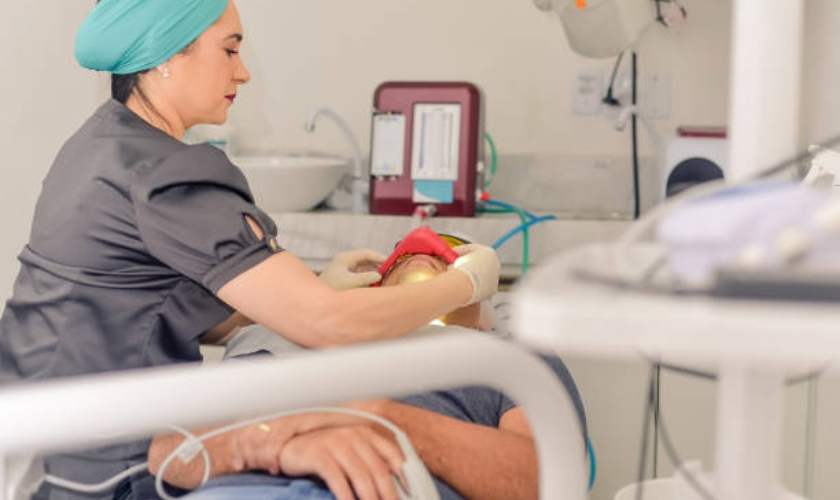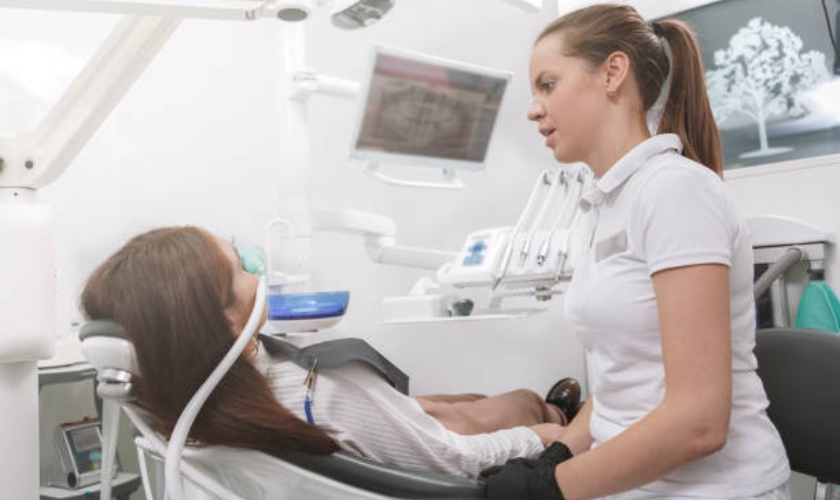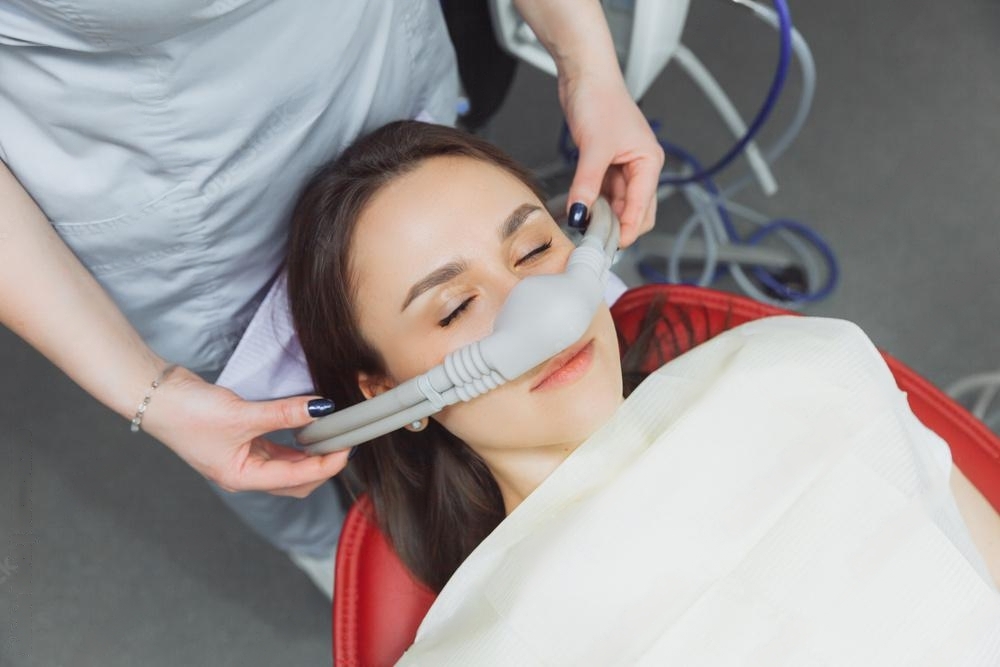
Patients of all ages often experience dental anxiety, and oral sedation is a popular solution to help ease nerves and discomfort during dental procedures. If you’re considering oral sedation for an upcoming treatment, it’s natural to have questions about what to expect before, during, and after the procedure. This blog will take you through the whole procedure, helping you feel more prepared and at ease.
What Is Oral Sedation?
Taking a prescription drug prior to your dental procedure to help you relax. The sedation level can range from mild to moderate, depending on the dose and your specific needs. Unlike general anesthesia, oral sedation doesn’t put you to sleep but rather makes you feel calm and less aware of the procedure.
Mild Sedation: This is the most common form, where you remain awake but relaxed. You may feel drowsy but still be able to respond to your dentist’s instructions.
Moderate Sedation: With a higher dose, you might feel groggy and may not remember much of the procedure. You could even fall into a light sleep but can still be easily awakened.
Preparing for Oral Sedation
Before your dental procedure, your dentist will provide specific instructions to ensure the oral sedation works effectively.
Follow Medication Guidelines: Take the prescribed sedative at the exact time instructed by your Newton Dental Studio dentist, usually about an hour before your appointment.
Avoid Eating or Drinking: In most cases, you’ll be asked to avoid food and drinks for several hours before your procedure to prevent any potential complications.
Arrange Transportation: Since oral sedation can impair your ability to drive, make sure you have someone to take you to and from the appointment.
Wear Comfortable Clothing: Loose, comfortable clothes will help you relax more easily during the procedure.
What to Expect During the Procedure?
Oral sedation allows you to remain conscious throughout your dental procedure in a profoundly calm condition. Here’s what you can expect:
Monitoring: Your vital signs, such as heart rate and oxygen levels, will be continuously checked throughout the process to ensure your safety.
Communication: Even though you’ll be sedated, your Newton Dental Studio dentist may still ask you to respond to simple instructions or questions. Most patients report feeling calm and detached from the activity around them.
Time Perception: One of the benefits of oral sedation is that it can make the procedure seem to pass by quickly. What might be a lengthy treatment will feel shorter to you.
What to Expect After the Procedure?
Once your dental procedure is complete, you’ll still feel the effects of the oral sedation. It’s important to follow post-procedure guidelines to ensure a smooth recovery.
Immediate Recovery: You’ll likely feel drowsy and disoriented right after the procedure. Your Newton Dental Studio dentist will let you rest in the office until the initial effects wear off.
Getting Home: Remember that you’ll need someone to drive you home. Plan to have them stay with you for a few hours afterward to ensure your safety.
Rest and Relaxation: Spend the rest of the day resting at home. Avoid any strenuous activities, and make sure to hydrate and eat light meals as soon as you feel ready.
Lingering Effects: The sedation may take a few hours to completely wear off. During this time, avoid making any major decisions or operating heavy machinery.
Possible Side Effects and How to Handle Them
Oral sedation is generally safe, but like any medication, it can come with potential side effects. Being aware of these will help you manage them effectively.
Drowsiness: Feeling sleepy is the most common side effect and can last several hours after the procedure. Rest is the best remedy.
Dry Mouth: Some patients experience dry mouth after oral sedation. Drinking water or sucking on ice chips can help alleviate this discomfort.
Nausea: Although not very common, some people may feel nauseous after sedation. Eating small, bland meals can help if this occurs.
Headache: A mild headache might occur as the sedation wears off. Over-the-counter pain relief can usually help manage this.
When to Contact Your Newton Dental Studio Dentist?
It’s rare to experience complications from oral sedation, but it’s important to know when to seek help. Here are some signs that you should contact your dentist:
Prolonged Drowsiness: If you remain excessively sleepy for more than 24 hours after the procedure, it’s worth giving your dentist a call.
Severe Nausea or Vomiting: While mild nausea is normal, severe symptoms should be reported to your dentist, as they may require further attention.
Breathing Difficulties: Any issues with breathing after the procedure should be addressed immediately. This is extremely rare but requires prompt action.
Benefits of Oral Sedation
Oral sedation offers numerous advantages for patients who experience anxiety or discomfort during dental visits. Here’s why it might be the right choice for you:
Reduced Anxiety: Oral sedation can significantly reduce feelings of fear and anxiety, making your dental experience much more pleasant.
Comfort: The relaxed state induced by sedation allows you to feel comfortable throughout the procedure, even if it’s lengthy or complex.
Efficiency: With sedation, your dentist can often perform multiple treatments in one visit, reducing the number of appointments you need.
Better Dental Health: Patients who avoid the dentist due to fear are more likely to delay necessary treatments. Oral sedation helps overcome this barrier, leading to better long-term dental health.
How to Discuss Oral Sedation with Your Dentist?
If you’re interested in oral sedation for your next dental procedure, it’s important to have an open conversation with your dentist. Here’s how to approach the topic:
Express Your Concerns: Be honest about your fears or anxieties. Your Newton Dental Studio dentist can recommend the best sedation option based on your needs.
Ask About the Process: Understanding what to expect can help reduce anxiety. Ask your Newton Dental Studio dentist to explain the sedation process and how it will help you during the procedure.
Discuss Your Health: Share any medical conditions or medications you’re currently taking, as these can affect your suitability for sedation.
Follow Pre-Procedure Instructions: Your dentist will provide specific guidelines to follow before your appointment. Adhering to these will ensure the sedation works as intended.
Oral sedation is a safe and effective way to ensure a comfortable dental experience, especially for those with anxiety or undergoing complex procedures. By understanding what to expect during and after the process, you can approach your appointment with confidence and peace of mind. Remember, discussing your options with a sedation dentist is the first step toward a stress-free dental visit. If you have any concerns about oral sedation after dental procedures, don’t hesitate to reach out to your dentist for more information. Your comfort and well-being are always the top priority.
Worried about your upcoming dental visit? At Newton Dental Studio, we offer oral sedation to ensure you stay relaxed and comfortable. Your well-being is our top priority. Call to learn more!



